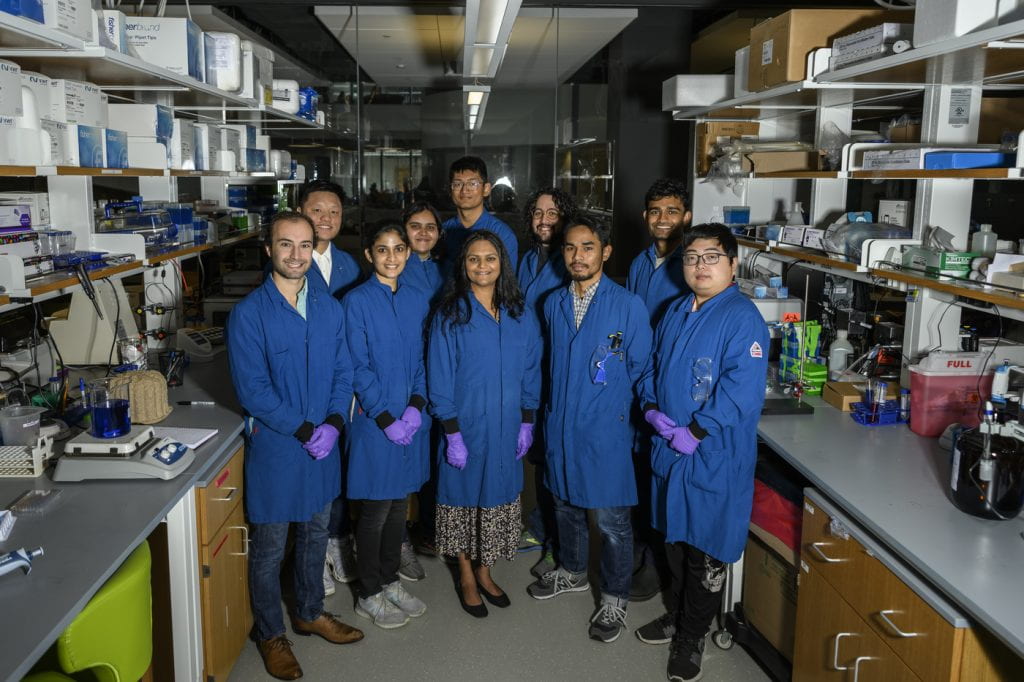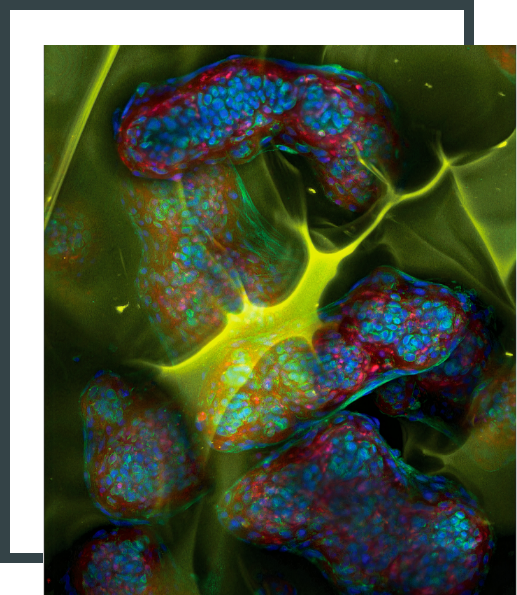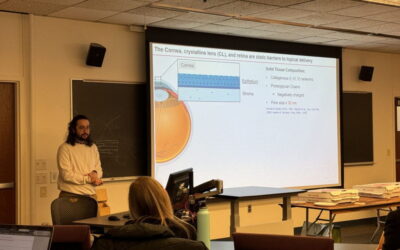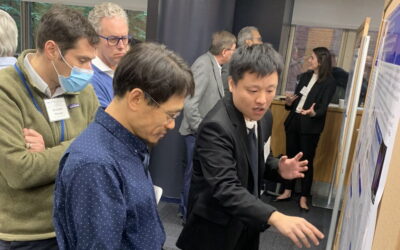Molecular Bioelectrostatics & Drug Delivery Laboratory
Located at Northeastern University’s Interdisciplinary Science and Engineering Complex (ISEC), the Bajpayee Lab works at the intersection of biomaterials design, nanomedicine and translational research. We utilize the body’s internal electric fields to design electrically charged biomaterials using proteins, peptides and cellular materials like exosomes, for targeting difficult to reach tissues for applications in drug delivery and diagnostic imaging.
Negatively charged tissues such as cartilage, meniscus, intervertebral disc, eye, and mucosal membrane, that also tend to be dense and avascular, are ubiquitous in the human body but remain outstanding challenges for targeted drug delivery. Their degeneration is associated with several common diseases that remain untreatable due to a lack of delivery systems that can enable drugs to penetrate the negatively charged matrix and reach their cellular targets. The high negative fixed charge density, however, can be converted from being a challenge to an opportunity by engineering therapeutics at the molecular level to add optimally positively charged domains such that electrostatic interactions can enhance their transport, uptake and retention rather than hindering them. Our lab engineers targeted bioelectrical therapeutics for treatment of diseases affecting such intrinsically charged tissues. We strive to combine basic science with translational research to develop biomedical technologies for unmet clinical needs.
Follow us on Twitter @bajpayeelab | @AmbikaBajpayee

We are supported by

Our Lab News
Tanvi’s award-winning research on a new therapeutic approach to combat osteoarthritis was selected by SFB for a Online Talk this Wednesday 12/6. Join Virtually with the Link Below (Free Registration)! 🎤
Last Friday was busy! Poster presentations and awards for Tanvi, Hengli, and Tim, and a Works in Progress (WIP) seminar from Héctor! 🎤
Awards: Tanvi & Hengli: Honorable Mention; Tim: Best Interdisciplinary Poster
Hengli presented exciting new work on Intra-Joint Sustained Release of Neosaxitoxin for Long-Term Osteoarthritis Pain Relief at Tufts! 🎤
This work was funded by Tufts University Clinical and Translational Science Institute (CTSI). Thank you Tufts!






